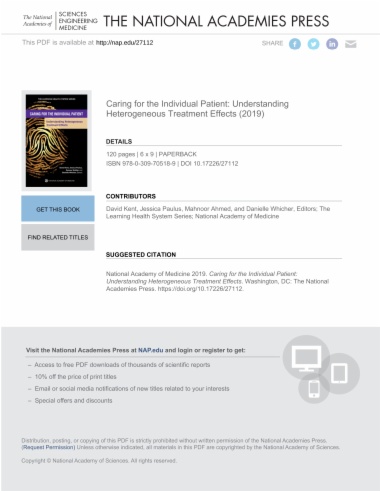

Evidence-based medicine arose from a clear need and represents a major advance in the science of clinical decision making. Despite broad acceptance of evidence-based medicine, however, a fundamental issue remains unresolved: evidence is derived from groups of people, yet medical decisions are made by and for individuals. Despite persistent assertions from clinicians that determining the best therapy for each patient is a more complicated endeavor than just picking the best treatment on average, traditional approaches have been overly reliant on the average effects estimated from the outcomes of clinical trials.
This Special Publication is based on a workshop, held by the National Academy of Medicine, that considered patient and stakeholder perspectives on the importance of understanding heterogeneous treatment effects (HTE) and best practices for implementing clinical programs that take HTE into account. For evidence to be more applicable to individual patients, we need to combine methods for strong causal inference (first and foremost, randomization) with methods for prediction that permit inferences about which particular patients are likely to benefit and which are not. Better population-based outcomes will only be realized when we understand more completely how to treat patients as the unique individuals they are.